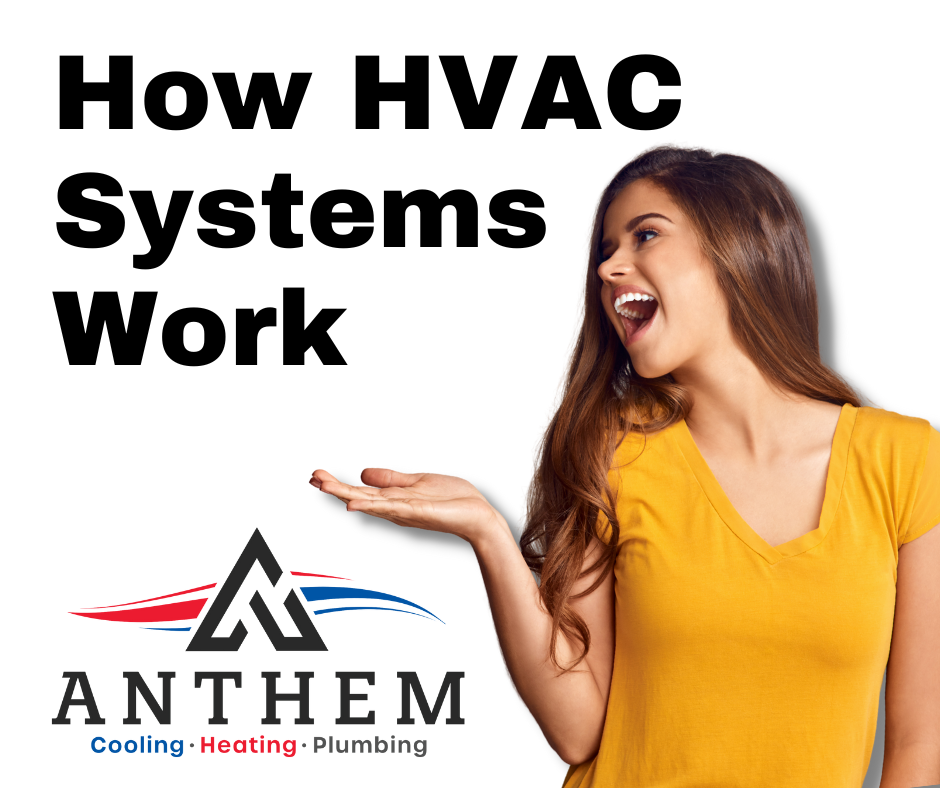
Ever found yourself in the dead of winter, clutching a hot cup of cocoa, relishing the warm embrace radiating from your home’s vents? Or maybe you’ve experienced those scorching summer days when your air conditioner becomes your best friend. The hero behind these comfort moments is something we often take for granted: HVAC.
Now, you might be asking yourself – what does HVAC stand for? It’s not just some random jumble of letters but an acronym that impacts our everyday lives. From homes to commercial buildings and everything in between, this seemingly cryptic term plays a vital role.
Get ready to explore the world of heating and cooling! We’ll dive into crucial parts like air conditioners, evaporator coils, and ductless mini-split systems. Plus, we’ll get to know HVAC pros who ensure our indoor comfort.
What Does HVAC Stand For?
You’ve probably heard the term ‘HVAC’ thrown around when talking about home or commercial building systems. But, what is the meaning of this acronym? Well, let’s get straight to the point. HVAC stands for Heating, Ventilation, and Air Conditioning.
This acronym encompasses three crucial functions in one system: heating up your space during chilly weather (heating), replacing stale indoor air with fresh outdoor air (ventilation), and cooling down rooms when temperature rises (air conditioning). In essence, an HVAC system is a hero that silently works behind the scenes to ensure you’re comfortable indoors regardless of outside conditions.
If we think about this using an analogy; imagine if your home was like a giant lung. It would need to inhale fresh oxygen-rich air from outdoors while exhaling carbon dioxide-laden stuffy indoor air – that’s ventilation in action. Then picture its ability to regulate body heat just as our bodies do by producing warmth on cold days and coolness on hot ones – voila. That’s exactly how heating and cooling work.
The essential purpose of an HVAC system goes beyond simple comfort, though. They also play a significant role in maintaining good indoor air quality, which can be crucial for health reasons especially considering most people spend over 90% of their time indoors, according to EPA estimates.
Understanding HVAC Systems
When you hear HVAC systems, it might sound complex, but they’re just a part of our everyday life. They’re in our homes, offices, and even the mall down the street. The primary purpose is simple – to make sure we all breathe easier.
The Role of Heating in HVAC Systems
Heating services offered by HVAC companies include maintenance, repairs, and installations. It’s all about creating comfort when the temperature drops.
In essence, an HVAC system provides heated air during cold seasons through central heating or a heat pump. This helps maintain cozy indoor conditions regardless of how chilly it gets outside.
Air conditioning plays its part, too – cooling things down when summer temperatures soar high up there with your favorite NBA stars. Central air conditioning works like magic to lower room temperatures while also reducing humidity levels indoors.
Cooling And Ventilation: A Power Duo
We’ve talked about heat, but let’s not forget ventilation and cooling. Cooling systems are crucial for maintaining comfortable indoor climates, especially in hot climates.
Ventilation keeps stale air moving out and fresh flowing in, helping improve indoor air quality dramatically – say goodbye to pesky allergens floating around.
Distribution: Last But Not Least.
Last on this list is distribution; once conditioned (either cooled or heated), the clean air needs to be distributed throughout the building via ductwork.
Components of an HVAC System
An HVAC system is like the lungs of your home or commercial building. It breathes in fresh air and exhales used air while also keeping your indoor climate comfortable.
Air Conditioner Units and Central AC
The primary role of air conditioner units, including central AC systems, is to remove heat from the indoors and release it outside. This process cools down the interior environment during hot climates.
Ductless Mini-Split Systems
Ductless mini-split systems, a form of central AC, provide both heating and cooling capabilities without needing ductwork. They are perfect for homes lacking space for extensive ducts or seeking more energy efficiency.
Air Handlers and Evaporator Coils
Air handlers, housing evaporator coils, circulate conditioned (heated or cooled) air throughout your building’s rooms via connected ductwork – akin to blood vessels carrying oxygen-rich blood around our bodies.
Outdoor Unit: The Heartbeat
The outdoor unit contains vital components such as condenser coils which cool down high-pressure refrigerant gas into liquid state – essentially acting as a heartbeat by pumping refrigerant through the system.
Window Air Conditioning:
In comparison to centralized systems, window air conditioning offers a cost-effective solution, but they typically lack capacity for larger spaces making them ideal mostly for smaller areas.

How HVAC Systems Work
Ever wondered how your home remains toasty in winter and refreshingly cool in summer? It’s all thanks to the workhorse of comfort, the HVAC system. But what does it do exactly?
Moving Air Indoors and Outdoors
The first thing an HVAC system does is circulate air between indoor and outdoor areas. Think of it as a giant fan that pushes hot or cold air where you need it most.
Cooling Down When Temperature Rises
In hot climates, cooling down becomes priority number one. The process called ‘conditioning’ takes center stage here. Conditioning units pull heat out from indoors, reducing temperature rises dramatically.
Warming Up with Heat Production
In colder seasons, however, we rely on our systems to produce heat efficiently. This task falls on parts inside like the furnace or heat pump – both vital players when heating up your home.
Purifying Indoor Parts for Better Air Quality
Besides regulating temperature, though, these hardworking systems also play another critical role: cleaning up your indoor air by removing dirt and other contaminants circulating around you.
So next time you breathe easy at home while temperatures fluctuate outside wildly, remember: You’ve got a smart little helper working tirelessly behind the scenes just for you.
The Importance of HVAC Systems
Ever wondered why we need HVAC systems? Beyond comfort, HVAC systems are essential for maintaining good air quality and promoting energy efficiency. The expertise of HVAC professionals, such as those available at Anthem, is vital for maintaining good air quality and promoting energy efficiency.
Anthem is an expert when it comes to managing your home’s airflow and indoor air quality. They ensure peak performance by using techniques from mechanical ventilation to natural ventilation methods for optimal results.
In simpler terms, they help make sure our living spaces have fresh air free from harmful levels of carbon dioxide. Without them, indoor areas could easily become stale or stuffy – definitely not ideal.
Beyond simply moving air around, HVAC systems also contribute significantly toward conserving energy. In hot climates where the temperature rises frequently or cold regions with constant chills, these units work tirelessly to balance out conditions indoors while keeping power usage low.
So next time you’re enjoying some cooled-down summer heat thanks to central AC or basking in warmth during winter courtesy of heating elements – remember there’s an entire system working behind the scenes. That’s right; what stands between us and harsh weather isn’t just brick walls but sophisticated machinery ensuring our homes remain safe havens no matter what Mother Nature throws at us.

Understanding HVAC Terminology
If you’ve ever wondered, “What does SEER stand for in HVAC?” or found yourself puzzled by terms like HRV and ERV, you’re not alone. Navigating the complex network of acronyms in Heating, Ventilation, and Air Conditioning can be daunting.
SEER, short for Seasonal Energy Efficiency Ratio, is a measure used to gauge an air conditioning unit’s efficiency over a cooling season. A higher SEER rating signifies greater energy efficiency.
In contrast, HRV, standing for Heat Recovery Ventilator, helps maintain indoor air quality by exchanging stale indoor air with fresh outdoor air without losing heat.
The term ERV, or Energy Recovery Ventilator, operates similarly to an HRV but also manages humidity levels which is essential especially in hot climates where dehumidification plays a vital role.
Another common acronym is AHU, or Air Handling Unit. It’s part of your central AC system that handles moving air throughout your building.
We hope this crash course gives you some clarity next time when dealing with these terms. But remember – understanding what they mean can help ensure optimal performance from your HVAC system.
Conclusion
Understanding the world of HVAC can seem like decoding a foreign language. But once you know what HVAC stands for, it’s not as intimidating.
From our cozy homes to bustling commercial buildings, these systems play an indispensable role. They ensure that we’re comfortable regardless of outdoor conditions.
We’ve explored heating and cooling units, delved into air quality issues and even uncovered some industry jargon. Each piece adds up to create efficient, effective climate control in our living spaces.
Moving forward with this knowledge allows us to make informed decisions about our home comfort needs. Remember: when it comes to maintaining indoor environments, understanding your HVAC system is key!
Regular HVAC maintenance is crucial for homeowners. By scheduling routine inspections and cleaning or replacing filters regularly, you can extend the life of your HVAC system, save money on repairs and energy bills, maintain warranty coverage and resale value, ensure optimal indoor air quality, enhance safety measures for your family, and postpone the need for system replacement.
Don’t delay in taking preventive measures for your HVAC system; it is essential to avoid expensive repairs. Make regular maintenance a priority to avoid costly repairs down the line. Trust Anthem to keep your HVAC systems working properly all year long.
Call us today at (760) 537-0795 or visit https://anthemcv.com/ to schedule an appointment!








No comment yet, add your voice below!